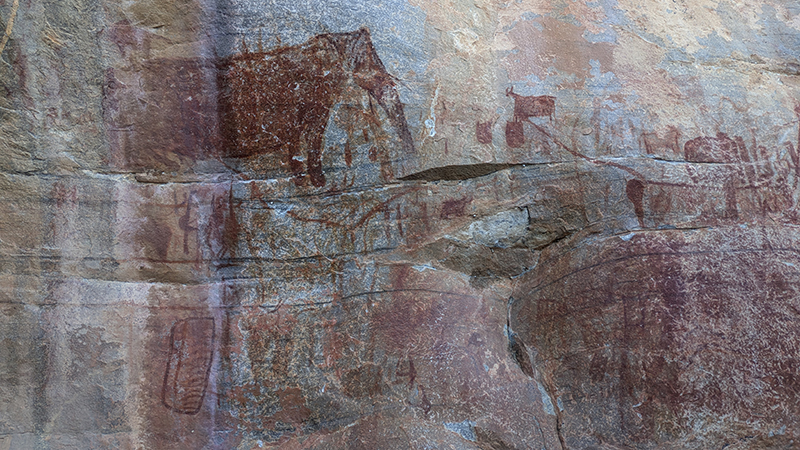Posted: 7/23/2024
SNR professors eye Africa for new study abroad on wilderness
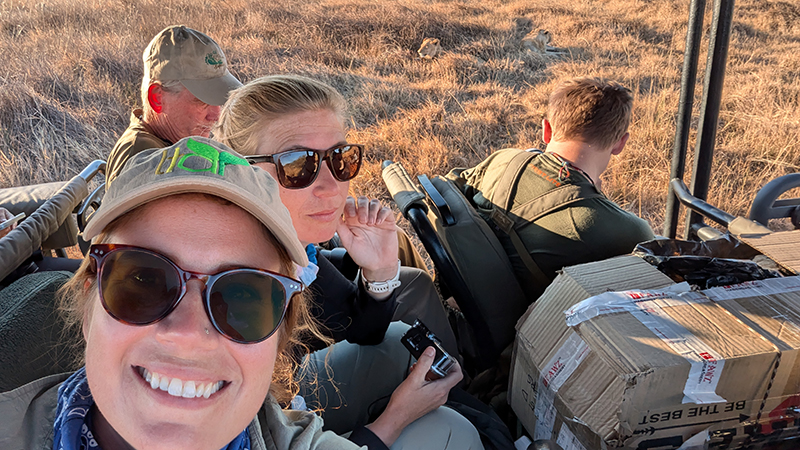
By Ronica Stromberg
John Carroll and Gwendŵr Meredith scoped the Okavango Delta in Botswana June 17-27, 2024 to prepare a study abroad on wilderness.
The School of Natural Resources professors took five former students and the school’s student success coach, Kenneth Pyle, with them to test run the study abroad expected to launch in summer 2025. The study abroad will complement the honors class "Wilderness in the 21st Century," which Carroll and Meredith teach.
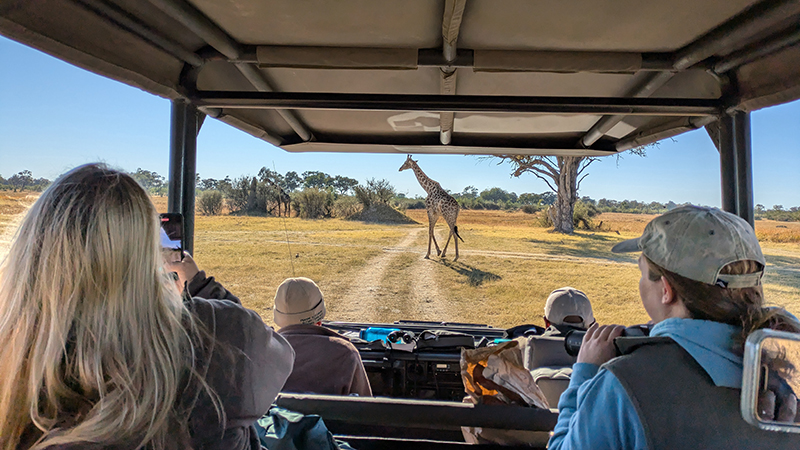
"For quite a while, I have been contemplating a course that is more focused on the idea of wilderness," Carroll said. "The idea was that with 9-10 billion people on the planet, our traditional views of what wilderness might be would have to be different. It also came about because, over the years, I have had occasional students who were interested in international affairs and the environment and often they were very interested in experiences that were outside their typical exposure to politics and policy."
When Meredith came to Nebraska in 2021, the two professors saw how her interest in sociology complemented his interest in conservation and they began teaching the wilderness honors class together.
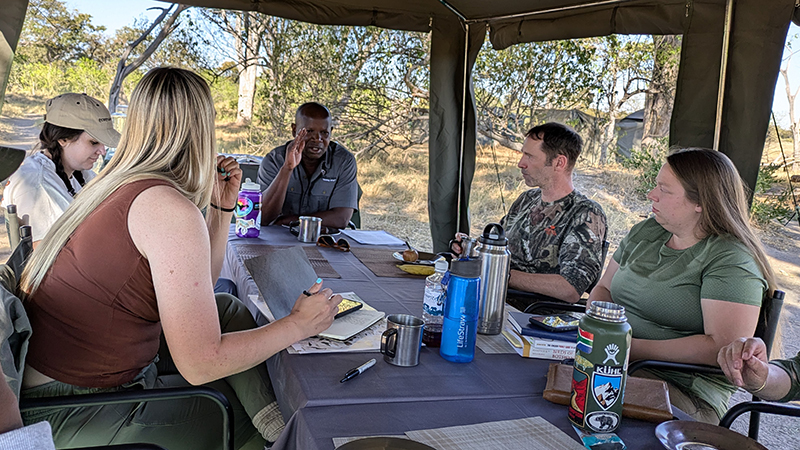
"We see the field course as a complement to the on-campus course, where that course focuses on our evolving view of wilderness, both positive and negative, but also on how that translates to practical considerations when entities look at pieces of the global landscape and make political and legal decisions that result in some of it being set aside as wilderness," Carroll said.
The scoping trip for the study abroad started in Maun, Botswana, and involved traveling the Okavango Delta by Land Rover, in thin canoes called mokoros and by boat. Travelers slept in tents for most of the trip and under the stars and mosquito nets for one night. The two guides had rifles, and on the sleepout, travelers took turns keeping watch for wild animals. The tents usually had restrooms built in, so no one needed to venture into the savanna at night.
After starting the trip by viewing wildlife in the Moremi Game Reserve for two days, the group traveled to the Tsodilo Hills and viewed rock art estimated at up to 20,000 years old. Over time, San Bushmen painted or engraved the more than 4,500 images, largely of animals and humans. This UNESCO World Heritage Site supported one of the main teachings of the class about the presence of humans in wilderness.
"Students usually come into that class with the mindset that wilderness means it's devoid of people," Meredith said. "And one of the facets of the class is that people are still part of these ecosystems and have been for a long, long, long time."
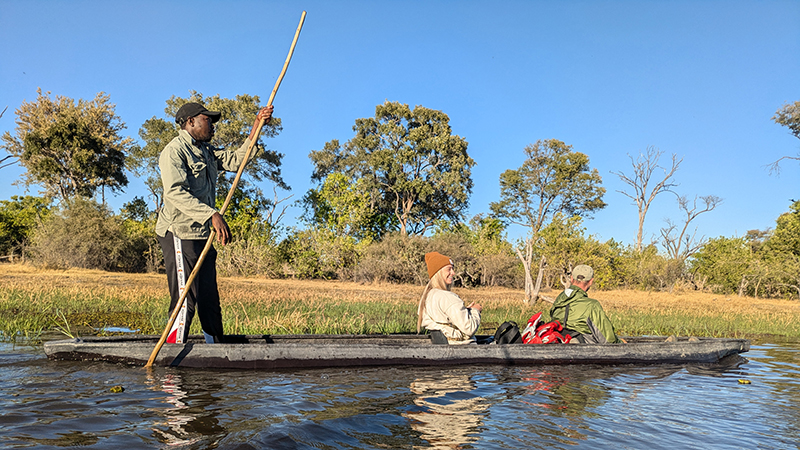
The travelers next went by power boat to Jao, the home village of their guide Okwa Sarefo. They visited the local school and learned how the town runs and what is changing in it. Residents had recently gotten Wi-Fi in one spot, and after work, people would bring lawn chairs and check their phones at the spot.
Meredith said it was interesting to talk with residents about how their community was changing and modernizing and how that affected wilderness. At least one spoke of a family member having to move from their home when a game reserve was put in.
Meredith said she and Carroll will probably add another village tour to the trip to see a broader spectrum of the local cultures, which other travelers had requested in their feedback. She said the travelers had pointed out that if the professors wanted people to care about the area, it would be good for the people to see what wilderness in the area is, the human residents as well as the animals and land.
Carroll said the travelers could easily see the complexities and challenges local Africans faced with a growing population, increasing numbers of tourists, mining and damming of rivers feeding the delta. These issues will be brought out in the future study abroad on wilderness and as part of the Okavango Delta case study in the "Wilderness in the 21st Century" honors class.
"The idea is to challenge our perspectives and understand that change is really the only thing that stays the same," Carroll said.
